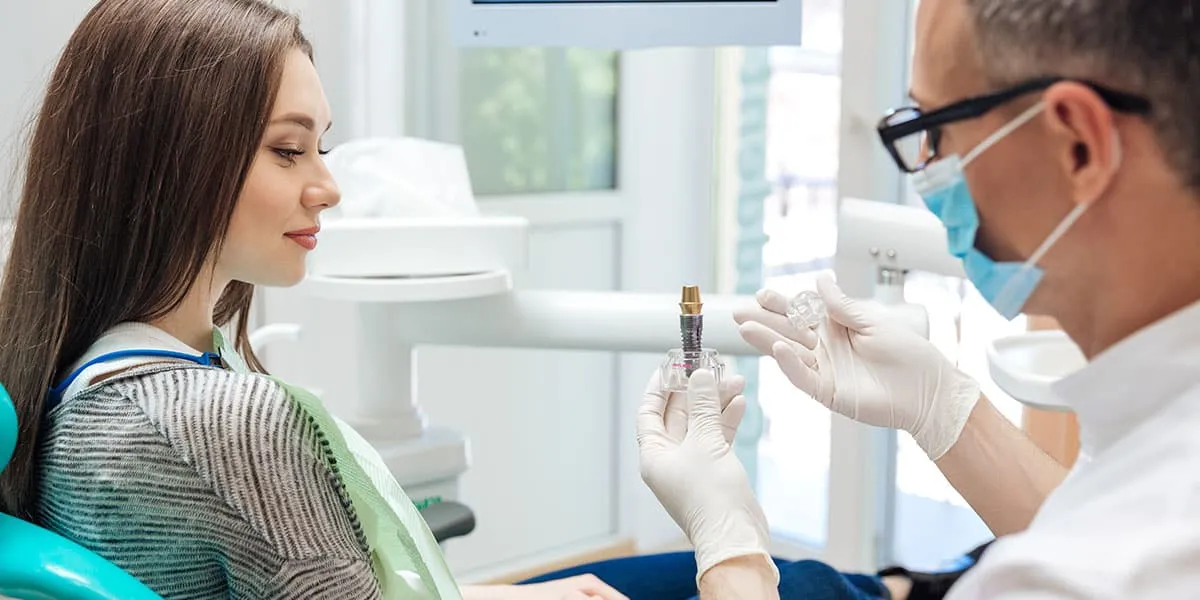
Dental implants offer a long-term, natural-looking solution for missing and broken teeth. The expert responsible for this specialist task is an implantologist. Dental implants are the best way to restore your teeth, but you may face the procedure with some trepidation. Knowing what to expect can help to soothe your concerns and enable you to take the next step to replace your missing teeth with a permanent dental solution.
Here’s how the process works.
Comprehensive Consultation and Examination
Your journey will start with a thorough dental examination. The implantologists will examine your mouth to assess the condition of your gums, jawbone, and teeth. They will use X-rays and 3D scans to analyze the bone structure and density. The objective is to assess whether your jaw can support implants. If you have any questions, now is the time to ask. The implantologist will explain the next steps at this consultation.
Personalized Treatment Planning
Your implantologist will tailor a treatment plan to your needs because every patient is different. The specialist will give you a timeline and explain all the treatment steps and what to expect.
Dental Implant Placement
Under local anesthesia or sedation, the implantologist surgically places titanium posts into your jawbone. The purpose of the posts or implants is to act as artificial roots. The implantologist will ensure accurate placement to minimize your discomfort and offer you the best chance of long-term success.
Healing and Osseointegration
The healing process starts after implant placement. The specialist will want you to wait while the implants fuse with the jawbones in a process called Osseointegration. You will make follow-up visits to ensure the implants progress at the required pace and your gums heal properly. This is a necessary step for implant stability and durability.
Tooth Restoration
Once the osteointegration process has run its course, it is time to complete the final restoration. The implantologist will work with a prosthodontist or skilled technician to ensure that your new teeth look natural and perfectly match your existing teeth in color and size.
Coping with missing teeth is never a good idea. A gappy smile can affect your self-confidence and what you can eat. A healthy jaw needs teeth to avoid bone density erosion, which can prematurely age you. Speak to your dentist about implants and explore your options.

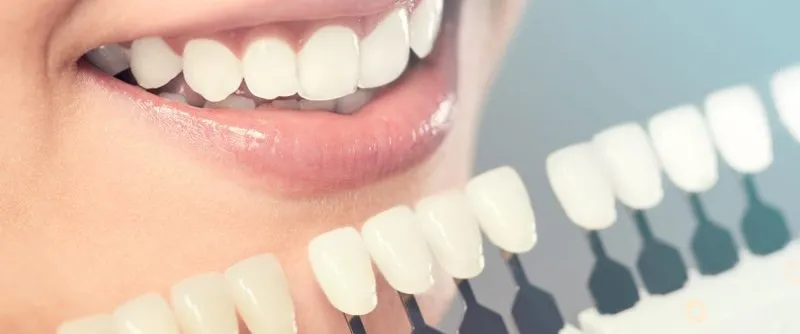
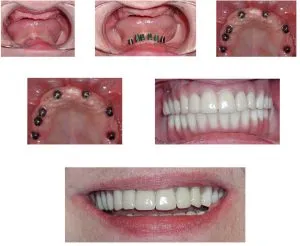 This patient had a hard time with her removable dentures for more than 10 years. Now she is very happy with implant-supported fixed bridges.
This patient had a hard time with her removable dentures for more than 10 years. Now she is very happy with implant-supported fixed bridges.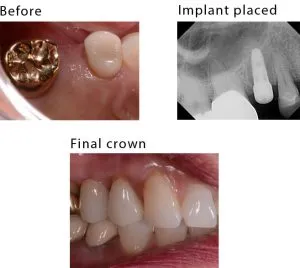 This patient is very happy with a beautiful implant-supported ceramic crown.
This patient is very happy with a beautiful implant-supported ceramic crown.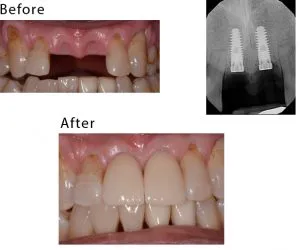 This patient lost his teeth because of periodontal disease. They were restored with implant-supported crowns.
This patient lost his teeth because of periodontal disease. They were restored with implant-supported crowns.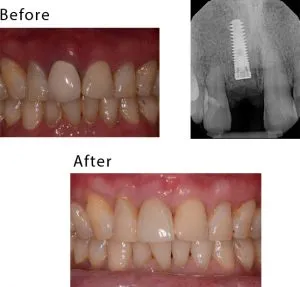 Patient had a periodontal infection and lost his front tooth. It was removed and restored with an implant-supported ceramic crown.
Patient had a periodontal infection and lost his front tooth. It was removed and restored with an implant-supported ceramic crown.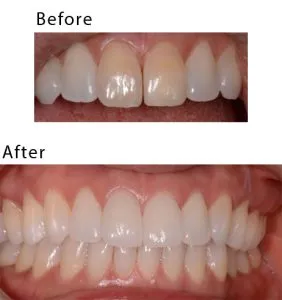 Two front discolored teeth were restored with Cerec crowns. It took 2 hours. They are beautiful and strong.
Two front discolored teeth were restored with Cerec crowns. It took 2 hours. They are beautiful and strong.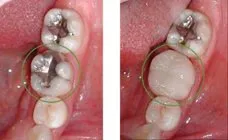 An old Amalgam filling was replaced with a Ceramic crown (Cerec). It took only 1 hour to finish.
An old Amalgam filling was replaced with a Ceramic crown (Cerec). It took only 1 hour to finish. 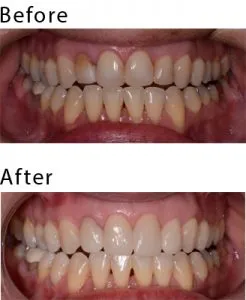 Upper 4 old crowns were replaced with Cerec, e max crowns. It took 3 hours and everything was completed in a same day. They are beautiful and very strong.
Upper 4 old crowns were replaced with Cerec, e max crowns. It took 3 hours and everything was completed in a same day. They are beautiful and very strong. Patient fell down and upper 3 teeth were damaged. Two teeth were restored in 3 hours, same day with Ceramic crowns (Cerec). One tooth was restored with composite resin. We took a picture after 3 weeks.
Patient fell down and upper 3 teeth were damaged. Two teeth were restored in 3 hours, same day with Ceramic crowns (Cerec). One tooth was restored with composite resin. We took a picture after 3 weeks.